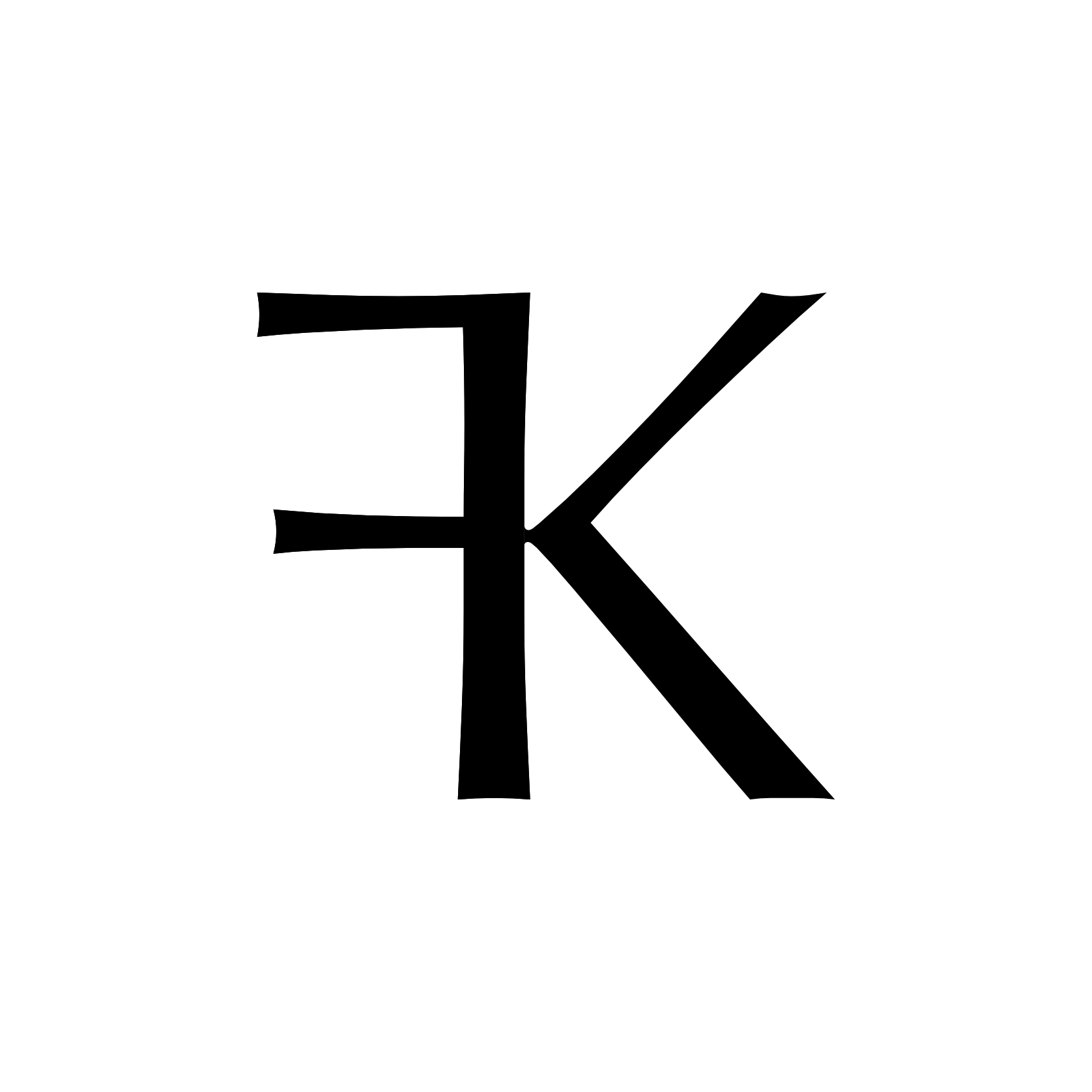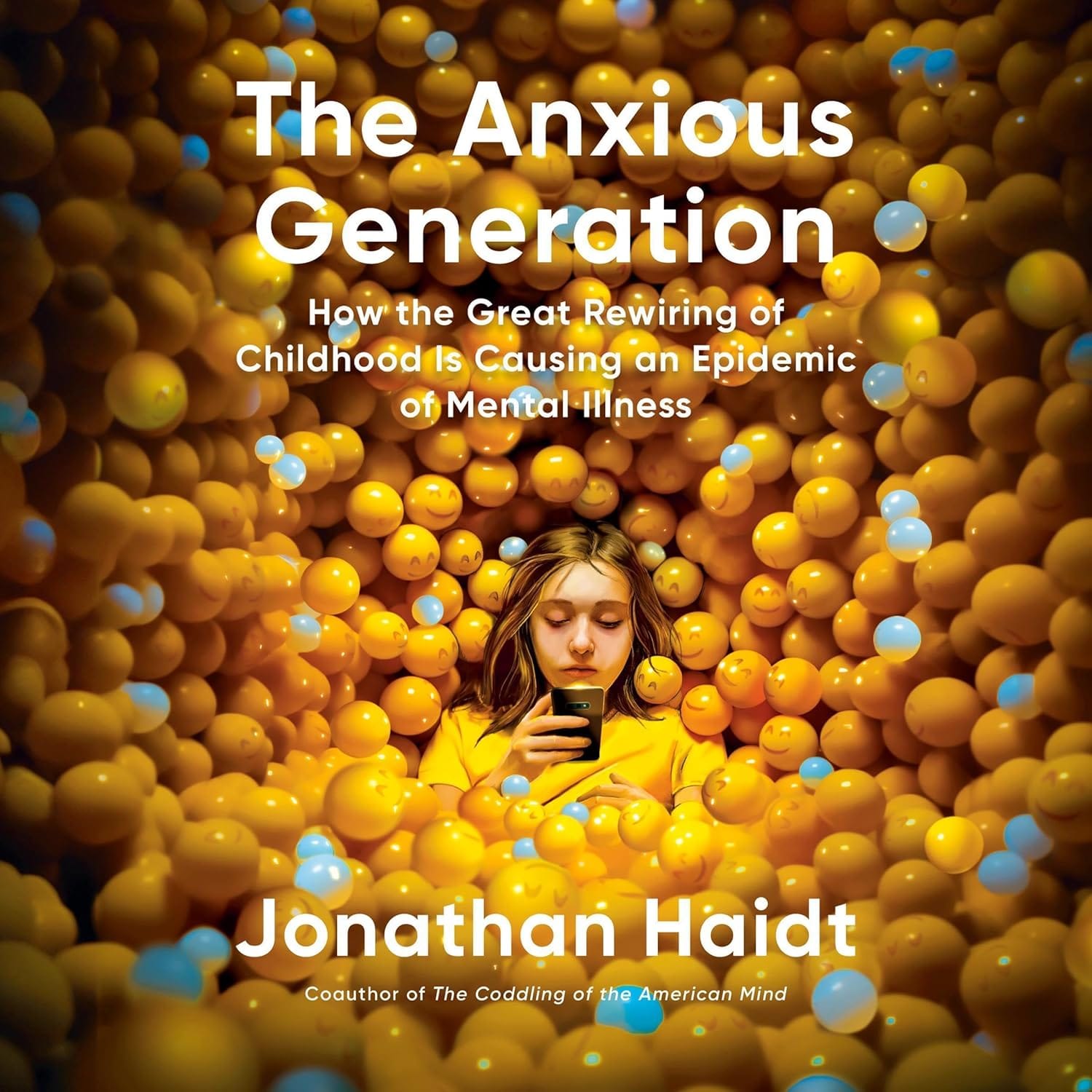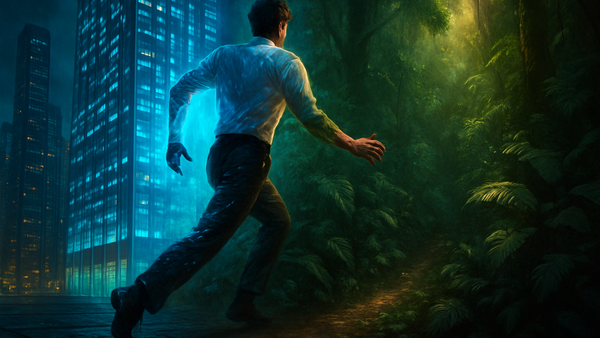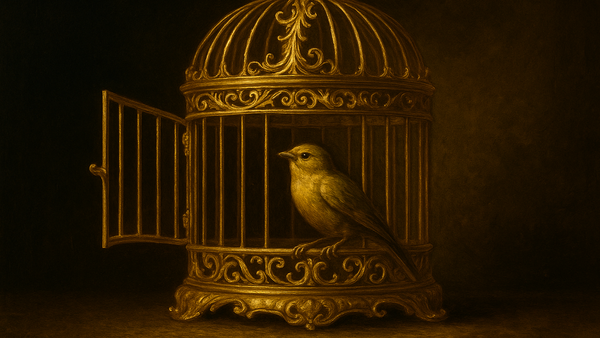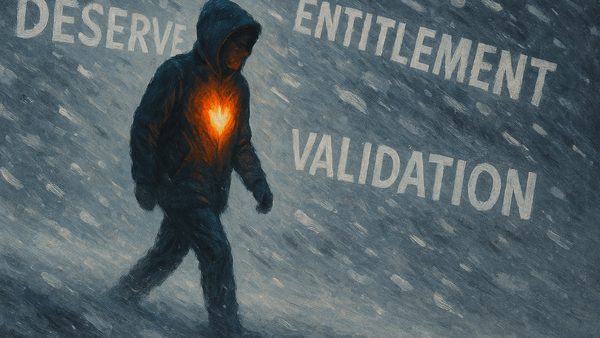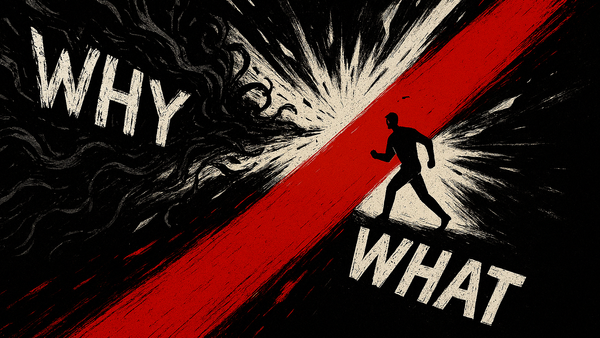Why Gorillas Don’t Bench Press
Discover how your surroundings shape your identity without your permission—and how to get back in charge. This week’s issue is about male-female dynamics, the anxious generation, and a sci-fi thriller.
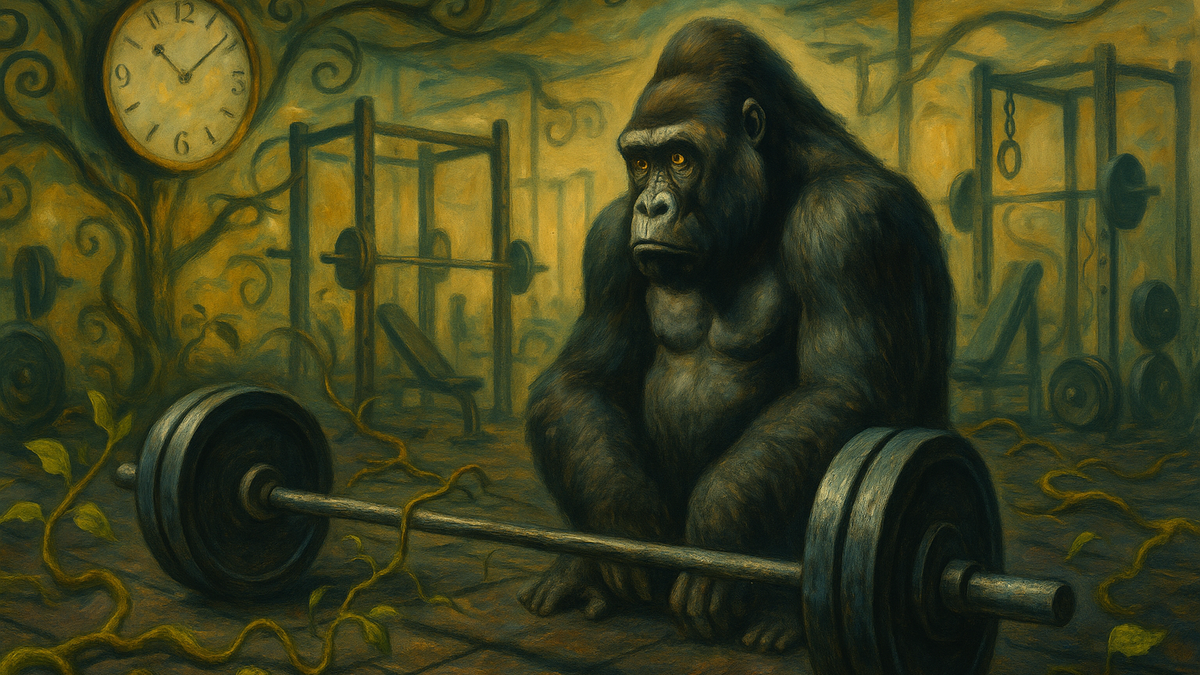
When we attempt to work out, care for our bodies, or soothe our minds—why does it feel so hard? Because we’ve built an environment where that behavior is unnatural.
You’ve never seen a gorilla doing pullups or a lion doing squats—not because they’re lazy, but because they don’t have to make a conscious effort to introduce such activity. Their lifestyle aligns with their physiology and instincts. Their strength and clarity are the byproducts of their environment. Not a chore, but a consequence.
Like any animal, gorillas are adapted to their habitat. They climb, fight, mate, and forage. Their behavior isn’t a lifestyle choice but the cost of survival.
Now look at us. Paying $50 a month to simulate survival indoors, while Uber Eats speeds through traffic so we have more time to post absurd cat videos on our WhatsApp stories. We’re running bodies and minds designed for the savannah inside a dopamine-drenched circus tent—an entirely artificial habitat.
Humans have created a world where laziness is adaptive. Where walking is optional. Where chairs are thrones and convenience is king. Even the ambitious are navigating a landscape hostile to our native wiring.
Our reward system that dictates that pleasure follows effort has developed over millennia, tightly intertwined with ancestral ecosystems. Discipline feels hard not because we’re weak by design, but because we now operate in a man-made environment that offers the choice—and mitigates the punishment—not to be disciplined. We don’t struggle due to a lack of focus, motivation, or grit—but because we’re trying to run ancient instincts in a synthetic environment built to numb and manipulate them.
Today, being sedentary, overstimulated, and overdosed on formerly rare substances has become natural. And being physically active and mentally balanced has become unnatural. That’s why we struggle. Our new normal is at war with our biological blueprint.
The reason a gorilla needs no gym membership, a crocodile no posture coach, and a duck no psychotherapist is because they don’t consciously reshape their existence—their entire outer or inner world.
This reshaping of environment for survival and reproduction is called niche construction. Beavers build dams that alter rivers. Termites raise mounds that modify soil and microclimates. Coral polyps construct vast reef ecosystems that shelter them from predators by secreting calcium carbonate from their bodies.
Even plants engage in niche construction by shading the ground, modifying the chemical composition of the soil, and thus influencing the types of organisms that can thrive there.
Every living being engages in some form of niche construction. However, it’s the scale and intent of human activity, driven by conscious will rather than instinct, that sets us apart. Where an ant builds a nest, a human reshapes landscapes, invents new realities, and alters the very DNA of life.
The distinguishing human quality is the conscious, intentional drive not just to adapt to and manipulate the environment—often with foresight of potential consequences—but to reshape the inner world as well. This self-reflective manipulation of our own instincts, thoughts, social structures, and even genetic code is uniquely ours. The mind’s relentless impulse to shape meaning and form ideas becomes tools, clothes, and homes—but also addictive substances, marketing hooks, and algorithmic snares, turning our brilliance back onto ourselves.
The beaver’s dam-building behavior, by contrast, is driven by instinct—not by internal reflection or a conscious plan to alter its environment beyond immediate needs. Its actions are purposeful, but not rooted in deliberation or goal-setting as we understand them. Beavers don’t ponder the long-term consequences of damming a river, nor do they alter their habitat with an awareness of its wider ecological effects beyond what is necessary for their own survival.
For humans, “natural” has become “artificial.” In the wild, our biology served us. Today, it often sabotages us—unless we learn to harness it deliberately. So stop blaming motivation or circumstances when things go wrong. Blame the ecosystem you’ve created—or at the very least, tolerated. There’s little room for complaint: we are both collectively and individually responsible for our condition.
To become excellent, we must assess, and then leverage, the artificial environment we inhabit. We can’t return to instinctual niche construction. But we can go forward: mastering conscious, deliberate niche construction. The solution is habitat design.
Use what gives you leverage. Eliminate what obstructs your dreams and goals. Discard all the bad stuff, utilize all the good stuff. This is our mantra.
If your ancestors led you into something, you can lead yourself out. If you created a problem, you can create its antidote. Take responsibility for the direction of your life. Be the sovereign of your mind, the sculptor of your fate.
Think about it.
Use your brain.
Find a solution.
The key to better habits isn’t willpower. It’s creating an environment in which better habits are natural.
Don’t wait to feel like working out. Live next to the sports center. Lay out your gear the night before in plain sight—so not training feels unnatural.
Make friends at the sports center who work out day and night—so that not working out with them would strain the friendship and feel unnatural.
Talk about fitness. Read about fitness. Watch fitness. Think fitness. Make any alternative to a fit life feel unnatural
Going from laziness to fitness is just an example. These tactics apply to any transformation.
Make good habits easy and rewarding. Make bad habits hard and expensive. Add momentum where you want flow; add friction where you want resistance.
Like every animal, we don’t rise above our environment. We adapt to it—or perish. Yet some plants and animals live longer, grow stronger, and shine brighter in zoos, greenhouses, and other closed habitats because those environments are meticulously optimized to support their flourishing.
There’s no need to rage against the new normal.
Become a gorilla—by creating the habitat of one.
⏤Ferdinand
SUNDAY’S SPARKS
𝕏 POSTS: Ideas that resonated with me
It takes a very rare type of man to command a woman without collapsing into tyranny, and to worship a woman without collapsing into simping - and it is the tension between these two forces - the capacity to command against the desire to revere that makes for the ideal husband.
— 🇬🇧 IM 🇬🇧 (@TellYourSonThis) May 9, 2025
Walking is free.
— Dan Go (@FitFounder) May 9, 2025
Squats are free.
Lunges are free.
Pull-ups are free.
Push-ups are free.
A rotisserie chicken at Costco is $4.99
Getting in shape is not expensive. If it's a priority, you'll find a way.
📚 BOOK: The Anxious Generation, Jonathan Haidt
Urgent examination of the youth mental health crisis, linking the rise of smartphones, social media, and overprotective parenting to escalating anxiety and depression among Generation Z. Haidt, a social psychologist at NYU, argues that the decline of free, risky play and the dominance of screen-based childhoods have disrupted essential developmental processes. He identifies four core harms—social deprivation, sleep disruption, attention fragmentation, and addiction—exacerbated by digital environments, particularly affecting girls. The book calls for collective action: delaying smartphone and social media use, banning phones in schools, and restoring independent play to rebuild resilience and well-being.
Of course, there is an enormous difference between the big social media companies today and, say, the big tobacco companies of the mid-20th century: Social media companies are making products that are useful for adults, helping them to find information, jobs, friends, love, and sex; making shopping and political organizing more efficient; and making life easier in a thousand ways. Most of us would be happy to live in a world with no tobacco, but social media is far more valuable, helpful, and even beloved by many adults. Some adults have problems with addiction to social media and other online activities, but as with tobacco, alcohol, or gambling we generally leave it up to them to make their own decisions. The same is not true for minors. While the reward-seeking parts of the brain mature earlier, the frontal cortex—essential for self-control, delay of gratification, and resistance to temptation—is not up to full capacity until the mid-20s, and preteens are at a particularly vulnerable point in development. As they begin puberty, they are often socially insecure, easily swayed by peer pressure, and easily lured by any activity that seems to offer social validation. We don’t let preteens buy tobacco or alcohol, or enter casinos. The costs of using social media, in particular, are high for adolescents, compared with adults, while the benefits are minimal.
🍿 MOVIE: Mickey 17
Sci-fi thriller from Oscar-winning director Bong Joon Ho, acclaimed for Parasite. Based on Edward Ashton’s novel, the story follows Mickey, an “expendable” worker on a colonization mission, who is regenerated after each death. As he confronts the implications of his repeated deaths and resurrections, Mickey begins to question his role and the mission’s purpose. The film delves into themes of identity, mortality, and the ethics of human replication.
A deliciously absurd setup, perfect for a cerebral movie night. Particularly noteworthy is the exceptional performance of Robert Pattinson, who proves once again he’s long outgrown the twilight of teen fantasy.
SUNDAY’S WISDOM
This is a piece of good fortune which has never failed me whenever I have been the victim of oppression, until I reached the age of fifty. Whenever I met with honest persons expressing a curiosity to know the history of the misfortune under which I was labouring, and whenever I satisfied their curiosity, I have inspired them with friendship, and with that sympathy which was necessary to render them favourable and useful to me. That success was owing to a very simple artifice; it was only to tell my story in a quiet and truthful manner, without even avoiding the facts which told against me. It is simple secret that many men do not know, because the larger portion of humankind is composed of cowards; a man who always tells the truth must be possessed of great moral courage. Experience has taught me that truth is a talisman, the charm of which never fails in its effect, provided it is not wasted upon unworthy people, and I believe that a guilty man, who candidly speaks the truth to his judge, has a better chance of being acquitted, than the innocent man who hesitates and evades true statements.
From The Story of My Life
by GIACOMO CASANOVA
Captured with the powerful Kindle reader.
Did this issue spark something in you?
Fuel Sunday Sparks’ independence.
Flows straight into content, not coffee.
